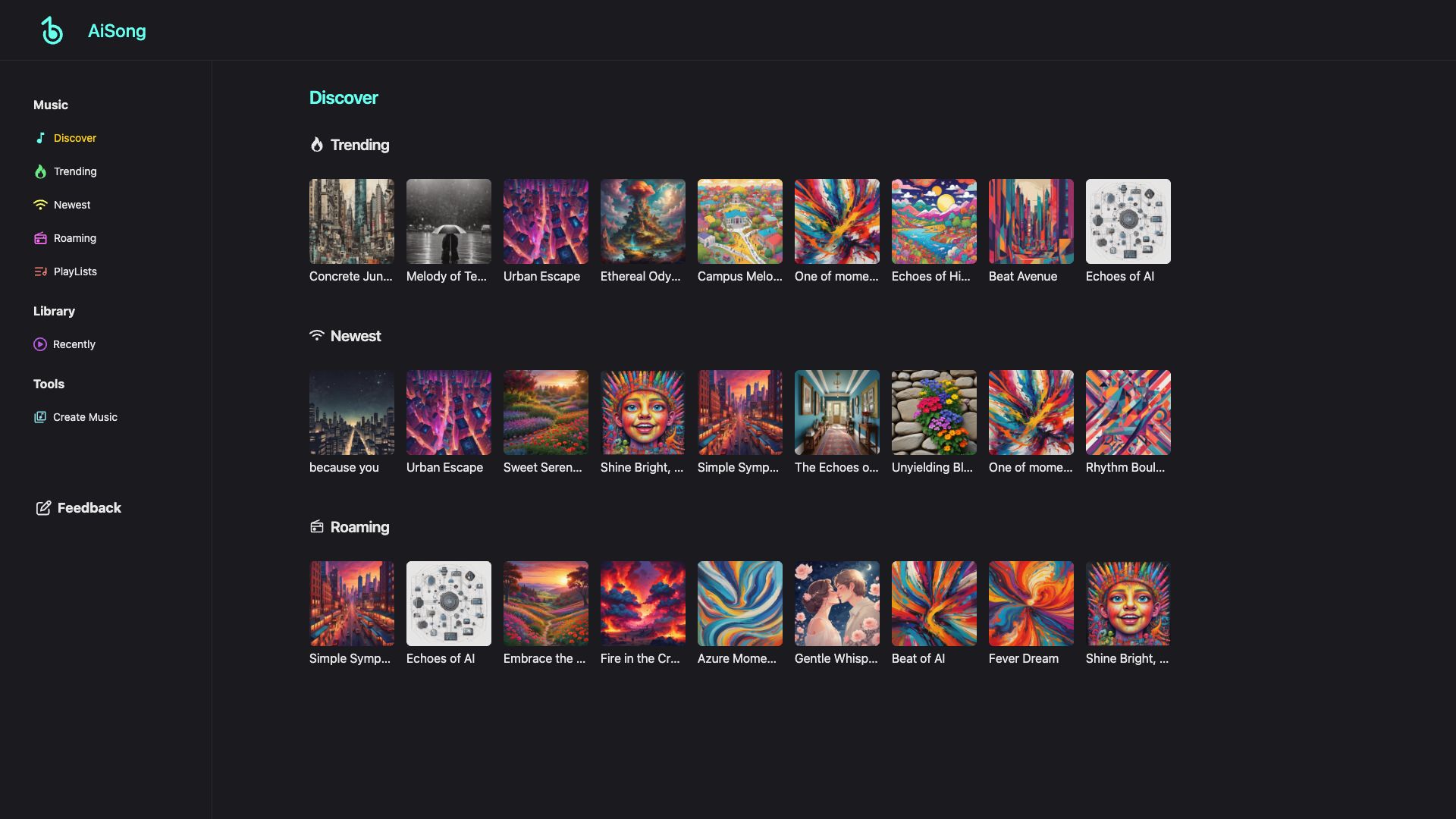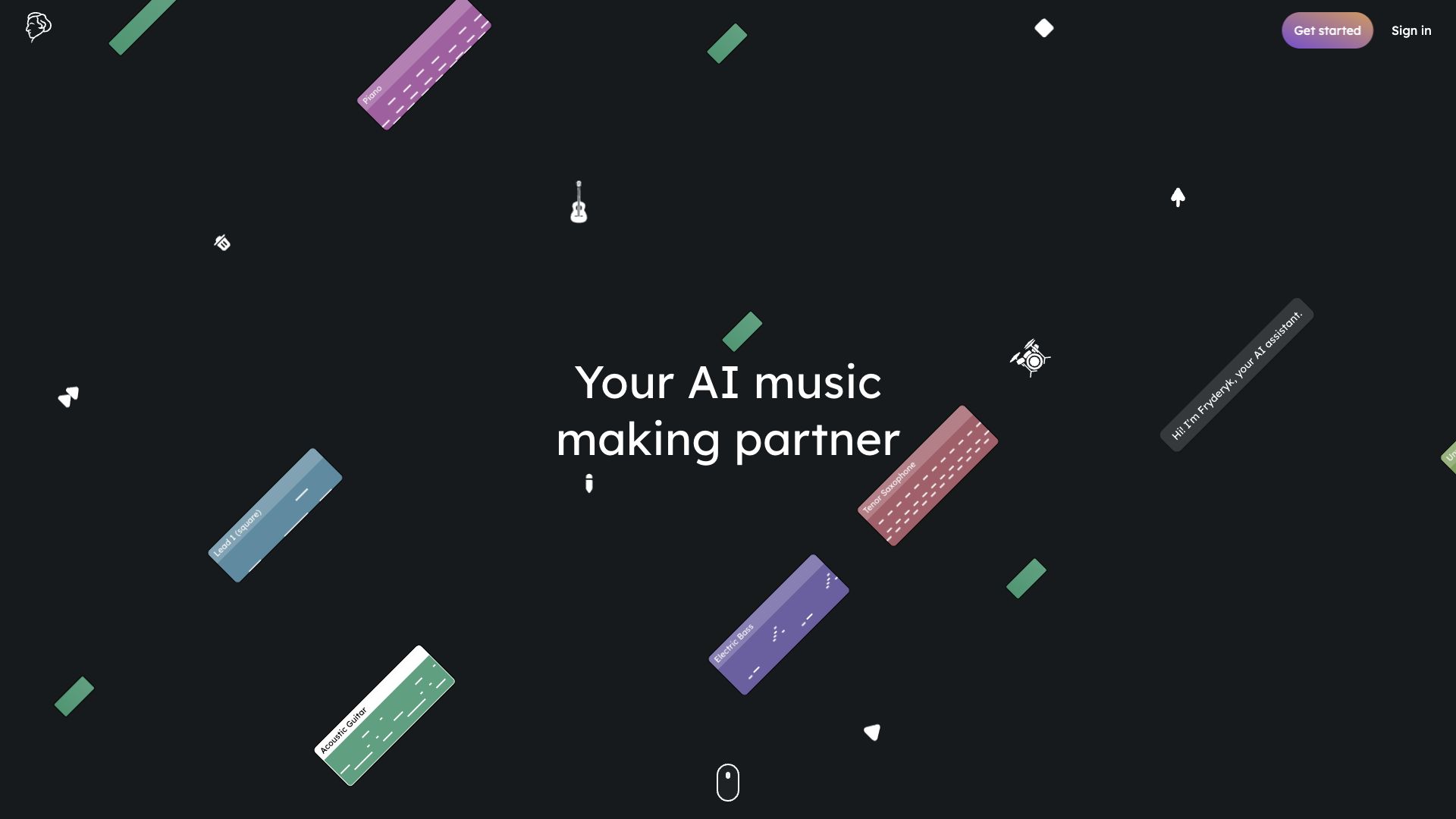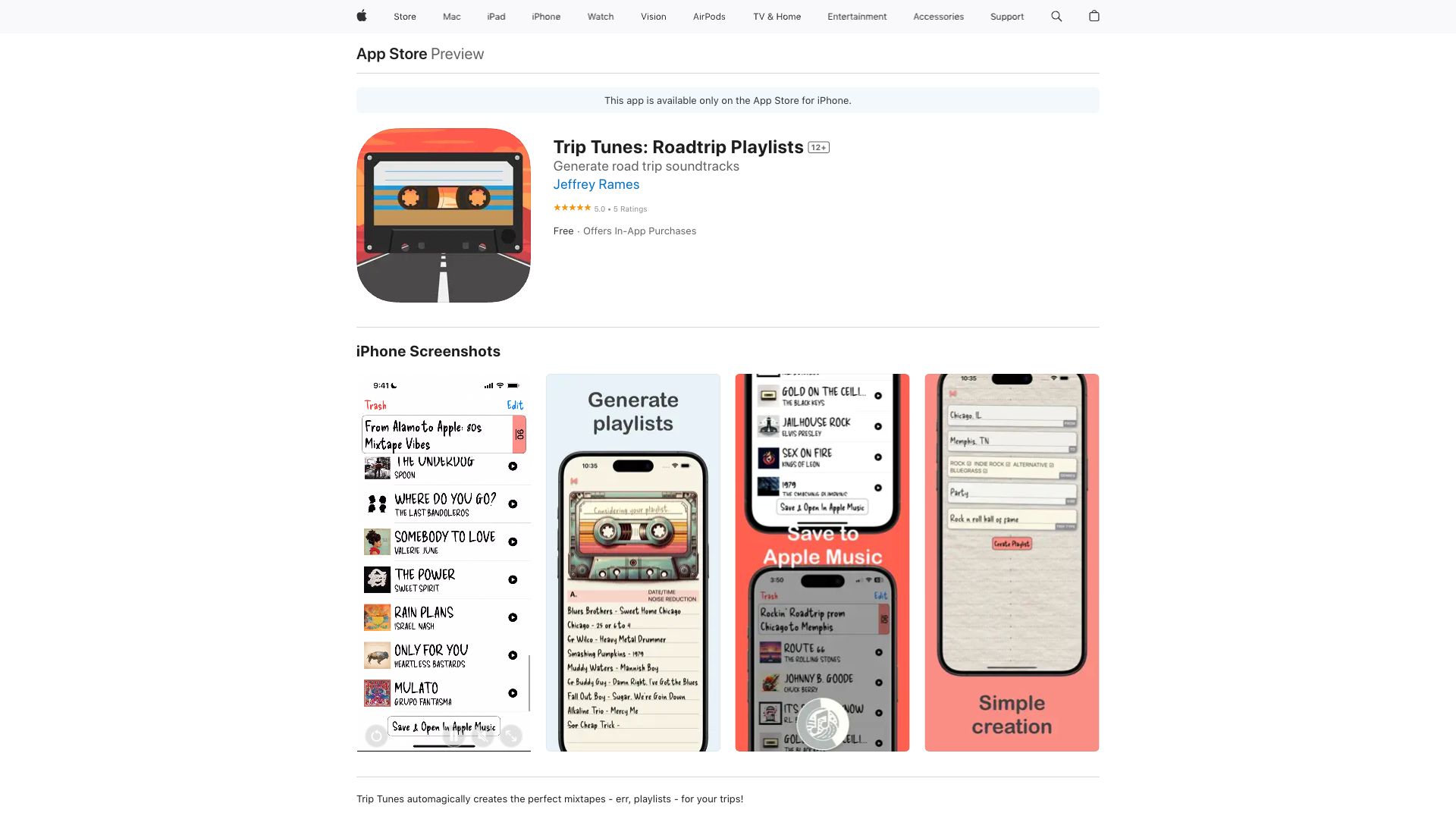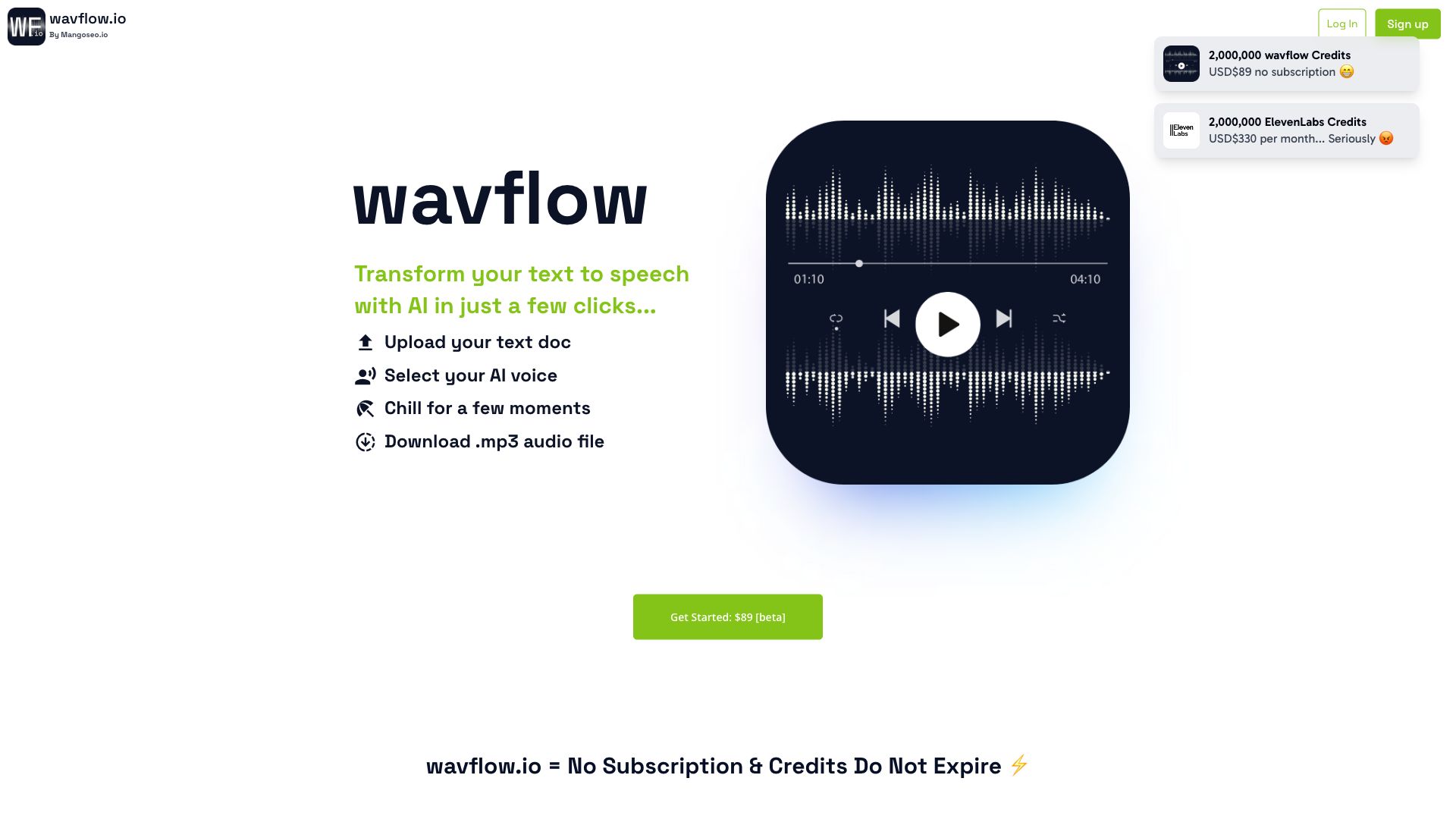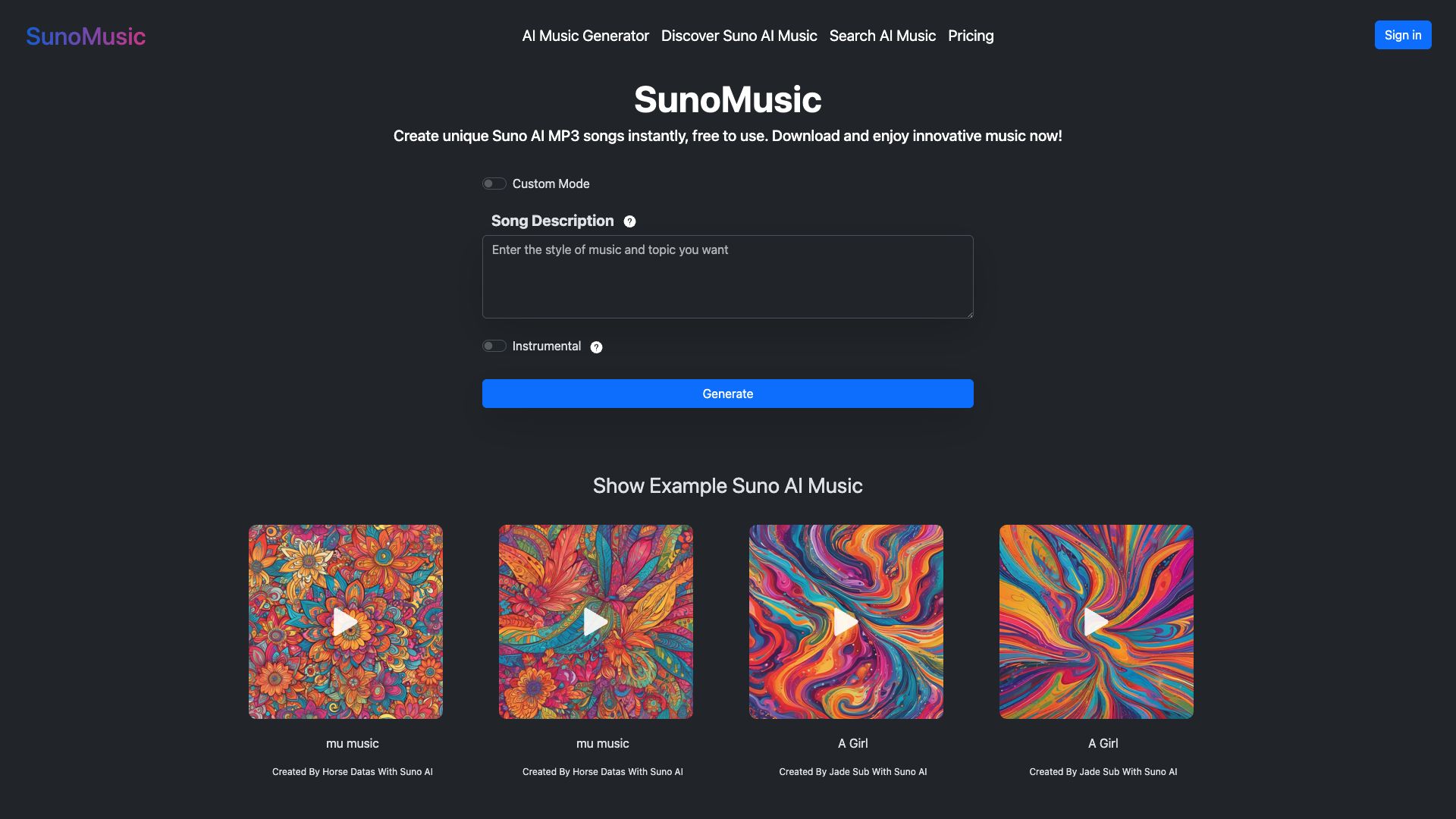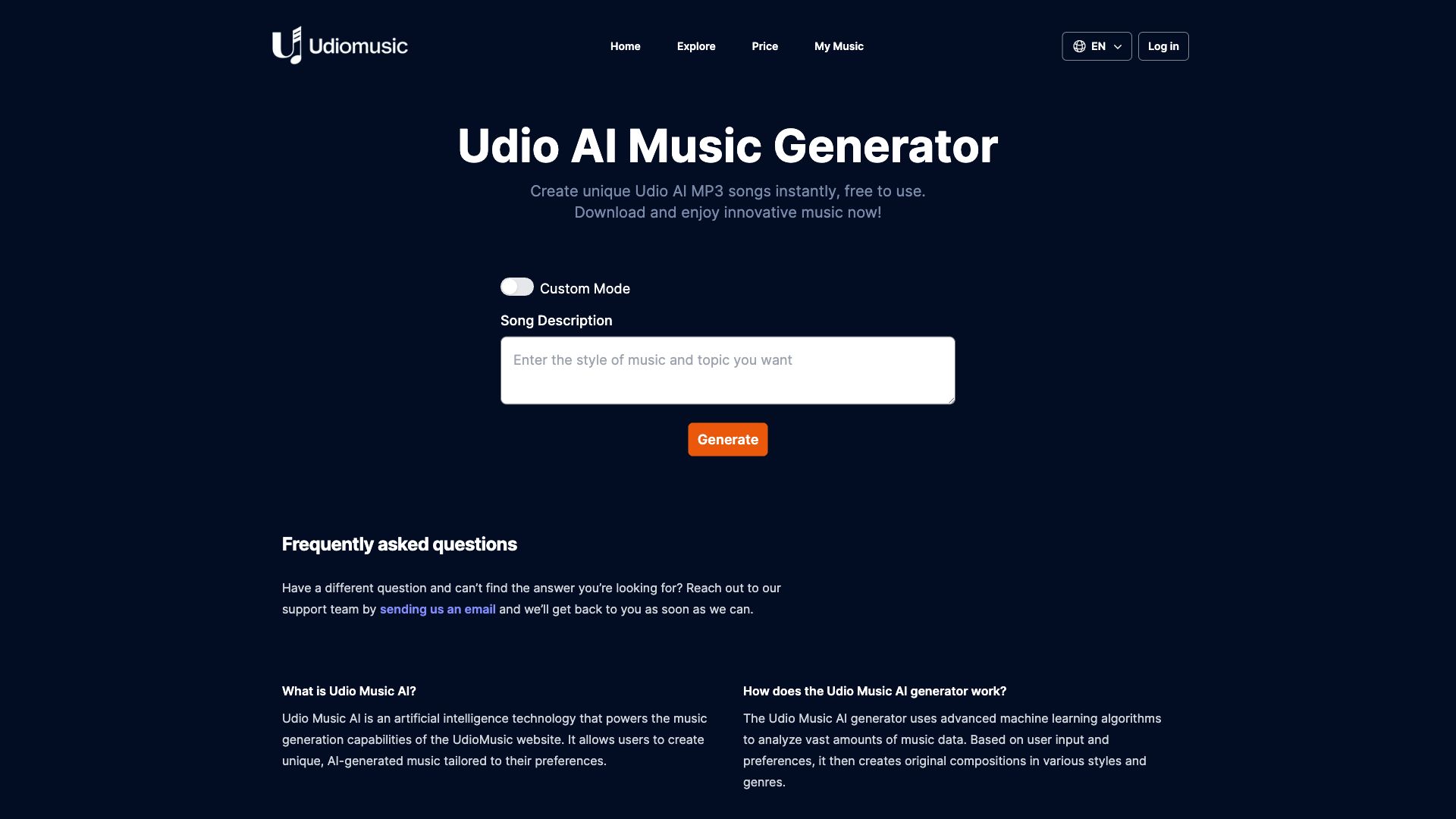Awesome AI Music Generator Tools in 2024
Discover the awesome 6 AI tools for 2024 By Candytools
Aisong crafts personalized melodies just for you, Accessible online for free, experience the perfect musical magic.
Fryderyk.ai is an AI music generator that allows you to create royalty-free music with the help of artificial intelligence. Explore various genres and customize your tracks, no musical experience required!
Hit the road with Trip Tunes! Create the perfect playlist for your next adventure. Input your start and end points, and we'll build a custom playlist based on your route, featuring local artists and hidden gems along the way. Buckle up and enjoy the ride with Trip Tunes!
WavFlow is a collaborative AI music platform that empowers creators to write, produce, and master studio-quality songs with the help of artificial intelligence.
Suno Music is an AI music generator that allows you to create unique tracks in seconds. Explore a vast library of royalty-free music, perfect for content creators, filmmakers, and musicians. Unleash your creativity with Suno Music.
Udio Music offers an AI-powered music generator to create unique, royalty-free tracks in seconds. Choose your genre, mood, and length, and let our AI craft the perfect music for your projects.
More AI Tools Categories
What is AI Music Generator?
An AI Music Generator is a program or software that utilizes artificial intelligence (AI) to create original music. These generators can produce various forms of music, including melodies, harmonies, rhythms, and even entire songs, without direct human input.
Here's how it works:
- Training Data: AI music generators are trained on massive datasets of existing music. This data helps the AI learn musical patterns, structures, styles, and other characteristics.
- Algorithms: Different algorithms are used to process the data and generate new music. Common approaches include:
- Markov Chains: These algorithms predict the likelihood of a note following another, based on the training data.
- Deep Learning: Neural networks are trained to identify complex musical patterns and generate original compositions.
- Genetic Algorithms: These algorithms "evolve" musical pieces by combining and modifying existing musical ideas.
- User Input: Some AI music generators allow users to provide some input, such as a desired genre, mood, tempo, or instruments.
- Output: The generator produces a piece of music in the form of MIDI data, audio files, or musical notation.
Uses of AI Music Generators:
- Songwriting and Composition: Assist musicians in generating new ideas, melodies, and harmonies.
- Background Music: Create soundtracks for videos, games, and other media.
- Personalized Music: Generate music tailored to individual tastes and preferences.
- Sound Design: Develop unique sound effects and textures.
- Music Education: Explore musical concepts and experiment with different styles.
Benefits of using AI Music Generators:
- Creativity: They can introduce novel and unexpected musical ideas.
- Efficiency: Quickly generate music for various purposes, saving time and effort.
- Accessibility: Makes music composition accessible to people without musical training.
- Experimentation: Explore different genres, styles, and instruments easily.
Examples of AI Music Generators:
- Amper Music
- AIVA (Artificial Intelligence Virtual Artist)
- Jukebox (OpenAI)
- MuseNet (OpenAI)
- Magenta (Google)
AI music generators are constantly evolving, becoming more sophisticated and capable of producing increasingly impressive and nuanced music. As the technology advances, it holds the potential to revolutionize music creation and offer new avenues for artistic expression.
